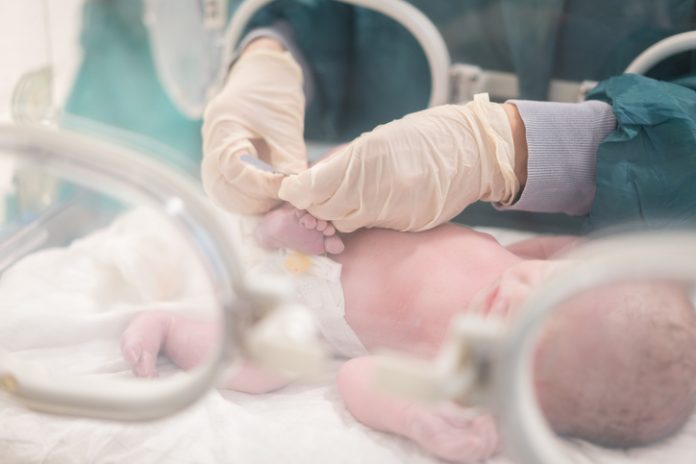Newborns at risk for lack of medical intervention.
Major Massachusetts hospitals no longer regularly perform toxicology tests on newborns or report prenatal exposure to addictive substances to state welfare agencies unless there is other evidence of infant abuse or neglect.
Mass General Brigham (MGB) changed hospital policy to address the “racial and ethnic inequities” present in health care, stating that substance abuse disorder in the context of pregnancy “disproportionately affects Black individuals,” according to an MGB website statement.
MGB is the largest hospital-based research enterprise in the United States, with annual funding of more than $2 billion and annual revenue of nearly $18 billion in 2022.
MGB joins Boston Medical Center, which revised its reporting of suspected abuse and neglect in 2021. “Fatal overdoses during and shortly after a pregnancy more than tripled nationwide between 2018 and 2021,” reports the Boston station WBUR-FM.
Selective Concern
Doctors who support traditional medical ethics view the policy change at MGB as ill-advised and dangerous.
To consider providing standard care and treatment racist requires twisting the meaning of words, says Jane Orient, M.D., executive director of the Association of American Physicians and Surgeons.
“For instance, ‘racist’ in Newspeak means disproportionate to percentage in population,” says Orient. “To me, it would seem racist to neglect diagnosis of substance abuse because failure to treat it would disproportionately harm black babies.”
Policy Ignores ‘Preventable Damage’
MGB’s policy is not just an exercise in sophistry, but a burden on patients, says Orient. “Preventable damage from being born addicted is very costly, and what about the cost in human suffering?” said Orient.
There are racial disparities in health care, but ignoring maternal drug use or children born with dangerous drugs in their system will lead to worse outcomes for minorities, says Orient.
“Black babies are disproportionately killed by abortion,” said Orient. “So, why isn’t this disparity a concern? And what about sending them home with a drug-abusing mother? And shouldn’t she be treated? It is hard to answer this because I can’t see how failure to diagnose and treat sick babies can be justified.”
‘Normalizing Illicit Drug Use’
Though newborn drug testing has primarily focused on opioids, the use of marijuana during pregnancy should also be a concern, says Orient. Recreational marijuana is legal in many states and the Biden administration has reclassified the drug so there are fewer restrictions on its use.
As a result of these policy changes, hospitals could eliminate testing for cannabis, says Orient. “Testing for marijuana is trickier,” said Orient. “There is a lot of denial about its harmful effects.”
Babies can be harmed if their mothers get high while pregnant, “So, how come we warn them about having a glass of wine but not an addicting drug?” asks Orient.
One motivation could be to normalize illicit drug use, says Orient. “And maybe that is part of our effort to eradicate morality and traditional standards,” said Orient.
Turning Their Backs
MGB’s policy is typical of a syndrome that has overtaken the health care industry, and turns every health care provider into a social justice warrior, says Texas physician John Dale Dunn, M.D., J.D., a policy advisor to The Heartland Institute, which publishes Health Care News.
“Here’s the way it works,” said Dunn. “The medical community has decided they’re not going to get involved with any kind of effort to deal with the illegal criminal conduct of members of any segment (of the population) that is identified as an oppressed minority.”
MGB’s policy ignores the fact that the purpose of drug screening newborns is to identify those mothers who are drug abusers, who are, by definition, abusing their babies, and are likely to do so in the future, says Dunn.
“So, in effect, what you’re dealing with is medical personnel are not going to find out what their patient’s drug status is because they don’t want them to be subject to any kind of law enforcement or social services actions,” said Dunn.
Becoming Socialist Tools
Policy-making for medical organizations is all about the politics, says Dunn.
“When you turn the medical professions into a social justice profession you end up with all kinds of crazy medical policies,” said Dunn. “If you just accept the fact that doctors ought to be focused on the welfare of the patient that’s in front of them, then the conduct of the physician, the professional, would be in accordance with that concern.”
The social justice movement views the issue as protecting the oppressed minorities who happen to have a problem with drug abuse, says Dunn.
“The consequences of well-meaning bull*** social justice programs and policies is the obvious reason why we shouldn’t accept this kind of stupidity,” said Dunn. “…(W)hat drives them is their concern about social justice. It’s … the kind of thing Marxists and socialists talk people into because their approach to societal conditions is … to identify the oppressors and the oppressed and do everything that you can to protect the oppressed because the oppressors are the bad guys.”
“I don’t trust the medical professions at this point under any circumstances because they have become a tool of the socialists,” said Dunn. “The result is they have adopted the ideological positions of the socialists and that’s the reason why this medical community problem in Boston is something you will probably see in other parts of the country.”
Kenneth Artz (KApublishing@gmx.com) writes from Tyler, Texas.





















